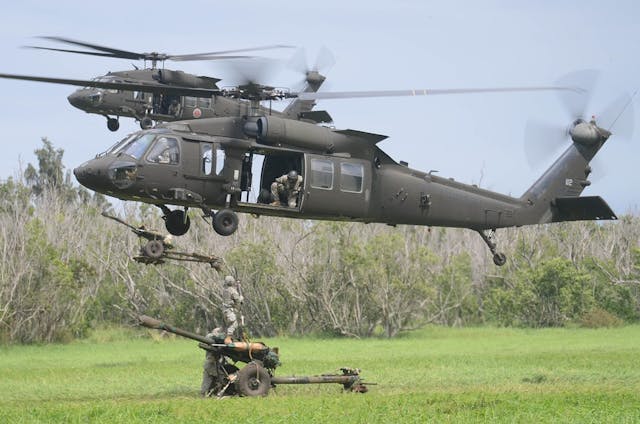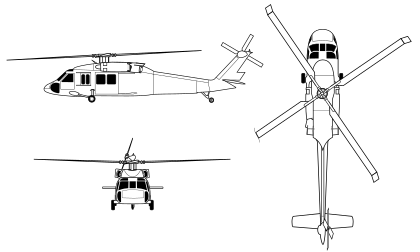UH 60 Black Hawk: From Idea to Modern Day Applications
UH 60 Black Hawk: From Idea to Modern Day Applications
Blog Article
The Duty of Aircraft in Shaping Global Transport and Trade Characteristics
The development of aircraft has indelibly transformed international transport and profession dynamics, assisting in unmatched levels of connection and performance. Via the establishment of robust air cargo networks, businesses can currently browse global markets with amazing speed and dexterity, thus redefining supply chain techniques. Nevertheless, this transformation is not without its difficulties, as the aviation market grapples with sustainability concerns and regulatory pressures. As we discover the complex effects of aircraft on international trade, it is vital to take into consideration exactly how these variables will certainly shape the future landscape of air travel and its function in the economy.

Evolution of Air Transportation
The advancement of air transport has been marked by substantial technological improvements and developments that have actually transformed the way individuals and goods relocate across the globe. From the Wright siblings' initial powered trip in 1903 to the development of supersonic jets, each milestone has highlighted the relentless search of efficiency and rate in flight. Early airplane were mostly fundamental, restricted by engine power and architectural stability. The intro of advanced materials and aerodynamics in the mid-20th century led to considerable improvements in airplane safety and security, performance, and reliability.
The last part of the 20th century witnessed the development of business aviation as a feasible setting of transport, defined by the intro of jet engines, which transformed air travel by dramatically decreasing trip times. The surge of air freight in parallel with passenger services has better highlighted the versatility of aviation.
Effect On Global Profession
Air transportation has greatly reshaped worldwide profession by helping with the swift activity of goods throughout huge distances. This expedited logistics capability enables organizations to respond quickly to market demands, consequently boosting supply chain performance. The ability to transport disposable items, high-value products, and time-sensitive items has actually opened brand-new markets and opportunities for different sectors, significantly influencing trade patterns.
Moreover, the development of air cargo networks has promoted globalization, allowing companies to resource products and items from various parts of the world perfectly. This interconnectedness lowers preparations and costs, enabling organizations to continue to be competitive in a progressively worldwide industry. Additionally, air transport plays an essential function in ecommerce, where customer assumptions for rapid distribution have actually driven a rise popular for air freight services.
The impact of airplane on worldwide profession prolongs to the creation of tactical profession courses, connecting regions and assisting in worldwide collaborations. Nations that spend in air transportation framework often experience improved economic growth and raised international straight financial investment. Overall, the evolution of air transportation has not only transformed the logistics landscape yet has also become a vital component in the dynamics of international profession.

Economic Benefits of Air Travel
A durable air travel sector produces substantial financial benefits, contributing to work development, tourism, and overall financial growth - uh 60. The aviation sector supports millions of jobs internationally, ranging from straight work in airlines and flight terminals to indirect roles in sectors such as hospitality, transport, and logistics. According to industry records, for every work in the air travel field, approximately 3.5 extra work are created in the broader economic climate
Tourist is a crucial aspect of the financial advantages stemmed from aviation. Flight promotes worldwide tourist, allowing tourists to discover varied locations, which consequently stimulates neighborhood economies. Nations that invest in their home air travel facilities frequently experience boosted vacationer arrivals, bring about greater costs on solutions such as dining establishments, attractions, and hotels.

Additionally, aeronautics boosts international connection, making it possible for organizations to access brand-new markets and sources successfully. This connection fosters worldwide profession, permitting for the fast activity of items, which is crucial in today's globalized economic climate. Therefore, markets such as shopping and manufacturing advantage profoundly from trusted air transportation, additional resource driving financial expansion. In general, the air travel market stays a foundation of economic vigor, highlighting its important role fit modern economies.
Difficulties Dealing With the Aviation Sector
Navigating an intricate landscape of governing, ecological, and financial obstacles, the aeronautics sector deals with considerable hurdles that intimidate its sustainability and growth. Laws surrounding security and safety and security are continually progressing, necessitating continuous compliance and adaptation from makers and airlines (uh 60). This can result in increased functional expenses and resource allocation that takes away from innovation and growth initiatives
Additionally, ecological problems have actually ended up being paramount, with expanding analysis over carbon exhausts and environmental pollution. The sector is under pressure to take on greener innovations and practices, which often require considerable financial investment in r & d. Stabilizing these ecological duties with the need for air travel presents a substantial challenge.
Economic variations, such as rising gas rates and geopolitical uncertainties, additionally make complex the landscape. Airline companies often grapple with unstable operating expense and changing guest need, which can influence productivity and lasting planning. Labor scarcities and ability gaps in crucial areas include one more layer of complexity, hindering functional performance.
Ultimately, addressing these complex challenges is essential for the aeronautics market to preserve its critical duty in global transportation and profession, while making certain resilience and versatility in a significantly competitive market.
Future Fads in Flight
Emerging technologies and shifting consumer preferences are positioned to reshape the future of flight substantially. The assimilation of expert system and device learning is anticipated to improve functional effectiveness, streamline Visit Website airport procedures, and boost client service. Predictive analytics will certainly assist in much more accurate demand projecting, permitting airline companies to maximize trip timetables and prices models.
Sustainability is ending up being a key chauffeur in air travel, with the air travel industry increasingly concentrated on reducing carbon exhausts. Developments in airplane design, such as electrical and hybrid propulsion systems, are being discovered to fulfill ecological targets. The adoption of sustainable aeronautics fuels (SAFs) is expected to play an essential role in accomplishing net-zero emissions by 2050.
Consumer choices are changing in the direction of personalized travel experiences. Airline companies are spending in advanced information analytics to customize services and enhance customer interaction, making sure a more tailored trip from reserving to arrival. In addition, the increase of remote job might result in boosted need for leisure travel, as people seek to incorporate job and vacation.
Conclusion
Finally, airplane considerably influence worldwide transport and profession characteristics by facilitating fast movement and improving supply chain effectiveness. The development of air transportation has changed worldwide profession, producing significant financial benefits while also offering challenges that require strategic administration. Future trends indicate an ongoing dependence on air travel for business, underscoring its integral role in globalization and economic development. The ongoing adaptation of the air travel sector will be important for maintaining its payments to the worldwide economic climate.
The latter part of the 20th century saw the introduction of business aeronautics as a feasible mode of transport, identified by the introduction of jet engines, which transformed air travel by substantially reducing flight times. The surge of air cargo in parallel with passenger services has better highlighted the versatility of aviation. Furthermore, air transport plays an essential duty in shopping, where consumer assumptions for quick delivery have actually driven a surge in need for air products services.
Generally, the advancement of air transport has not only changed the logistics landscape but has likewise come to be a crucial part in the dynamics of worldwide profession.
Sustainability is ending up being a vital chauffeur in air traveling, with the aviation sector significantly concentrated on minimizing carbon exhausts.
Report this page